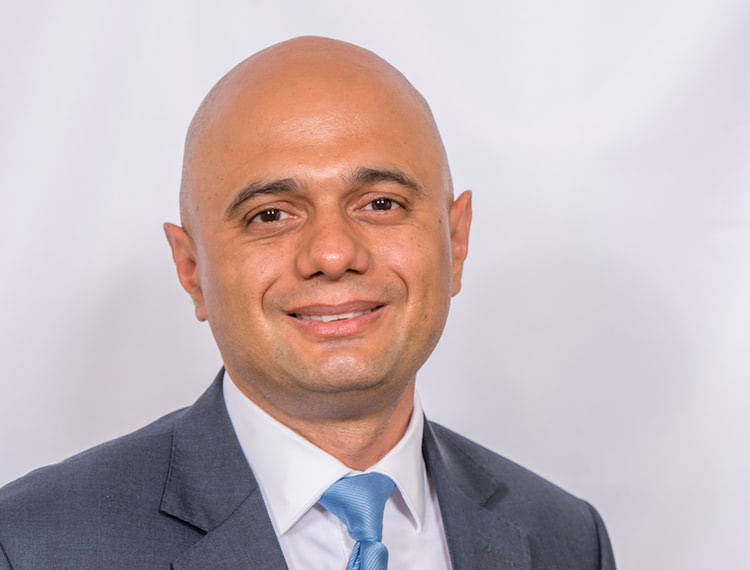Chancellor announces £400 million investment for 16-19 year olds’ education – Sector Response

Both former FE students, the Chancellor and the Education Secretary know first-hand the importance of the further education sector
Providers of 16-19 education such as further education and sixth form colleges will receive £400m additional funding to train and teach our young people the skills they need for well-paid jobs in the modern economy, the Chancellor has announced (31 Aug).
The boost is the single biggest annual increase for the sector since 2010.
 On a visit to the FE college in Bristol where he studied economics, maths and computer science, Chancellor Sajid Javid said:
On a visit to the FE college in Bristol where he studied economics, maths and computer science, Chancellor Sajid Javid said:
Further education, like all our public services, is a lifeline of opportunity for our young people.
We’ll make a strong statement in backing it at this week’s Spending Round and I’ll continue to look at what more we can do to help, just as my FE college opened my horizons and set me on my way.
 Education Secretary Gavin Williamson said:
Education Secretary Gavin Williamson said:
As former FE students, the Chancellor and I both know first-hand how important the further education sector is so I’m really pleased that today that government is giving our sixth forms and colleges a major funding boost – the single biggest annual uplift since 2010.
This investment will make sure we can continue to develop world-class technical and vocational education to rival countries on the continent so we have a highly skilled and productive workforce for the future.
This includes protecting and increasing the base rate with funding worth £190 million to boost access to high quality courses for more than a million 16-19 year olds.
Colleges and school sixth forms will also get £120 million to help deliver expensive but crucial subjects such as engineering which lead to higher wages and, ultimately, a more productive economy.
There will be £35 million more for targeted interventions to support students on level 3 courses (A level equivalent) who failed GCSE Maths and English, so they can re-sit their exams in these critical subjects.
Colleges and further education providers will receive an extra £25 million to deliver T-levels. The new qualifications start rolling out in September 2020 and will transform vocational education with two-year courses in subjects as varied as accounting, digital production and onsite construction.
The advanced maths premium, which adds £600 to college budgets for every additional student who takes on A- and AS- level maths, is also funded with £10 million additional funding.
A new £20 million investment will also help the sector to continue to recruit and retain brilliant teachers and leaders, and provide more support to ensure high-quality teaching of T Levels.
The announcement forms part of the Spending Round so covers the financial year 2020-21.
The money announced today will be allocated across the 257 colleges in England, as well as other FE providers, including school sixth forms.
The Barnett formula for Scotland, Wales and Northern Ireland will be applied in the usual way with block grant amounts confirmed at the Spending Round.
Sector response to chancellor’s funding for 16-19 year olds’ education pledge
 Sir Ian Diamond, Chair of the Independent Commission on the College of the Future said:
Sir Ian Diamond, Chair of the Independent Commission on the College of the Future said:
“Today’s announcement on increased funding in further education for 16 to 19 year olds in England is welcome news. It reflects recognition in Westminster and Whitehall that colleges are vital public assets which must be funded properly if they are to continue delivering for people and communities.
“But the political attention cannot end here. We face key challenges, with changes in demography, the world of work, technology, climate and the UK’s place in the world, to name a few. It’s clear that colleges can and must play a significant role in meeting these challenges. This requires further serious policy attention and long-term thinking.
“That’s why we have brought together experts and leaders from across all four corners of the UK to ask the fundamental questions about the role and place of colleges in the future. We are working with colleagues across the education sector, business and beyond to put forward clear recommendations in a final report to be published next Spring. The Commission looks forward to building on today’s promising announcement to ensure colleges across the UK can play the critical role that they must in our communities and for our economy.”
 Lawrence Barton, Managing Director, GB Training, said:
Lawrence Barton, Managing Director, GB Training, said:
“There’s a certain irony that the day after the Government announces the appointment of a new finance Tsar to review the way the Department for Education monitors college financial management it announces plans for a multi-million-pound funding boost for further education colleges.
“Politicians need to learn that the only way they can truly get to grips with the financial mismanagement endemic within the college sector is by encouraging colleges to be more financially competitive and less dependent on state handouts.
“FE funding in England and Wales is so skewed in colleges favour — to the detriment of independent providers — that they’ve been overcome by complacency. Only by encouraging effective competition and weaning colleges off guaranteed funding grants will the Government get a handle on the financial mismanagement plaguing our country’s colleges and driving up teaching standards.”
 Chief Executive of the Association of Colleges David Hughes said:
Chief Executive of the Association of Colleges David Hughes said:
“Colleges have been overlooked and underfunded for far too long. Today’s announcement of an additional £400 million marks the first meaningful investment in further education for 16 to 19 year olds for more than ten years. It’s not enough to reverse the decade of cuts, nor to properly stabilise the sector for the future, but it is a good start.
“I am delighted that the government has listened to college leaders, MPs, businesses, students and stakeholders, all of whom have made it clear that they want more investment in colleges. The announcement today will start to invest more in our young people with a long overdue increase in the base funding rate for 16- and 17-year olds. This will help support the world-class education and training which colleges provide to help our young people to succeed.
“We believe that an announcement about funding to cover higher Teacher’s Pension Scheme costs will come separately and look forward to seeing the detail of that. Recent changes to pensions means colleges are locked into schemes which take a rising share of their budgets with no additional support in funding currently.
“Both the Chancellor and the Prime Minister have spoken regularly about the importance of our colleges, and the need to properly invest in them and today they have started to honour that commitment. However adult education was notably absent, with the number of adults in further education almost halving in the last decade, funding is urgently needed to boost opportunities to retrain and tackle skills shortages.
“I am optimistic that more investment will follow next year when the spending review will be able to set out a longer term settlement to support thriving and vibrant colleges for the long term. We will continue to work with government, and campaign with partners to make sure that colleges continue to be a serious political, economic and social priority. That means long-term, sustainable funding, and a robust lifelong learning system.
“Schools received a three-year commitment that allows them the chance to plan and deliver – we’ll be pushing government to do the same for colleges in next year’s spending review.”
Bill Watkin, Chief Executive of the Sixth Form Colleges Association said:
“This £400 million investment is good news – sixth form education that has been starved of resources over the past decade and today’s announcement provides a much needed boost to the 1.1 million 16 to 18 year olds in colleges and schools across England.
“Around half of this investment will be used to Raise the Rate – the government has obviously listened to the coalition of organisations and MPsand MPs behind the campaign to increase the base rate for sixth formers – and we regard this as a step in the right direction. We need to see more detail on all of today’s announcements, but it is clear that this is the first meaningful investment in mainstream sixth form education for a decade”.
 Jo Grady, General Secretary, UCU said:
Jo Grady, General Secretary, UCU said:
“Today’s funding announcement comes after months of tireless campaigning by trade unions and the further education sector. It is crucially important that colleges use this funding wisely; staff have borne the brunt of cuts in recent years and closing the £7,000 pay gap between school and college teachers must be the top priority for spending.
“Any funding is to be welcomed, but we need to be clear that it falls well short of the £3bn needed to restore college budgets to their 2010 levels. It is particularly disappointing that there is no additional funding for adult education, which has seen its budget slashed by over 45% in real terms this decade. The government must dig deeper if it wants to ensure our colleges can deliver transformative education for all those who would benefit.”
Geoff Barton, General Secretary of the Association of School and College Leaders, said:
“We welcome the additional investment in 16-19 education announced today. It is not enough to reverse the damage caused by the cuts of recent years, but it is a step in the right direction. The plight of this vital sector has been ignored for far too long, and we are pleased that the government has finally listened.
“The investment announced today will at last mean an increase in the base rate of funding which has been frozen at £4,000 per student for 16 and 17 year olds since 2013. However, it is not enough money to raise the rate to the £4,760 that the House of Commons Education Committee only recently called on the government to deliver as a matter of urgency. This is disappointing, as is the fact that the funding announcement provides no immediate relief and that it covers only the year 2020/21 with no commitment to further investment beyond that timeframe.
“We will continue to work constructively with the government to build on today’s announcement and ensure that every sixth form and college is properly funded.”
John McDonnell MP, Labour’s Shadow Chancellor, responding to the Government’s announcement on further education spending, said:
“Once again, this announcement falls woefully short of the Prime Minister’s promise to reverse the Tory cuts to education. This is just a tiny fraction of the amount that further education and sixth forms have lost under the last two Conservative governments. Nor has there been an extra penny for adult education, which has suffered even worse cuts.
“A Labour government will not only end the Tory cuts but provide free lifelong learning in further education colleges as part of our investment in a National Education Service.”
According to the IFS report ‘2018 Annual Report on Education Spending in England’, funding per student aged 16–18 has seen the biggest squeeze of all stages of education for young people in recent years. School sixth forms have faced budget cuts of 21% per student since their peak in 2010–11, while further education and sixth-form college funding per student has fallen by about 8% over the same period.
A Labour calculation, based on an analysis by the independent Institute for Fiscal Studies, has found that spending on further education and skills has fallen by £3.3 billion in real terms between 2010-11 and 2017-18. The cuts have been most severe in adult education, which has seen a real terms cut of nearly £1.7 billion, around 50% of its budget, and further education, which has faced a £1 billion cut that amounts to around 25% of its total budget.
According to the EPI report “16-19 education funding trends and implications“, the financial health of 16-19 providers has significantly deteriorated since 2010/11: the proportion of those with in-year deficits has increased across all institutions, with a particularly large rise seen in sixth form colleges: a five-fold increase of 7 to 36 per cent from 2010/2011 to 2016/17. An increasing number of local authority schools with sixth forms are in financial difficulty – the proportion with cumulative deficits has risen significantly from 12 per cent of schools in 2010/11 to 22 per cent in 2017/18. In stark contrast, schools without sixth forms have only seen rises of 6 per cent to 9 per cent. Teacher wages in FE colleges are now around 17 per cent lower than for teachers in secondary schools.
The Raise the Rate campaign has found that over a third of schools and colleges (38%) have dropped STEM (Science, Technology, Engineering, Maths) courses and that more than three quarters of schools and colleges (78%) have reduced or removed student support services or extra-curricular activities.
After the announcement of the largest cash boost in a generation, the Education Secretary, Gavin Williamson, will be answering your funding questions live on Facebook this Thursday (5 Sept) at 6pm.
Have you heard? Big announcement by Boris for Schools this afternoon, word is it’s FE’s turn tomorrow (Saturday):
PRIME MINISTER BOOSTS SCHOOLS WITH £14 BILLION PACKAGEhttps://t.co/4Nod9ea7am pic.twitter.com/WGPvDSkiug— FE News (@FENews) August 30, 2019

Responses